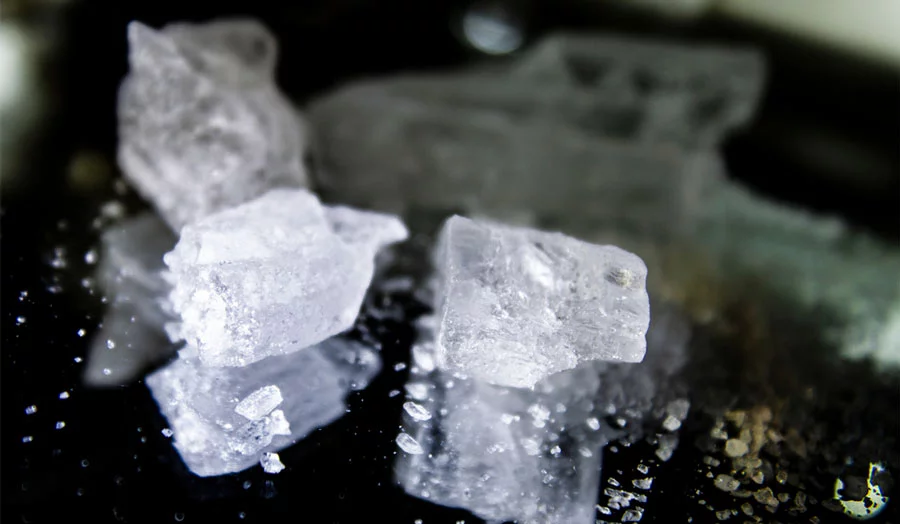Meth Detox
Call Now To Get On The Road To Recovery.
Addiction Treatment that
Just Works
Individualized treatment programs delivered in a comfortable, relaxed setting promote healing in your recovery journey.
*As required by law, all communications with Resurgence Texas are HIPAA Compliant and 100% Confidential
Overcome Meth Withdrawal and Find Recovery
If you’ve been struggling with meth abuse, you aren’t alone. Meth addiction is a severe public health issue in the United States. More than 1.5 million Americans had a methamphetamine use disorder, according to data from the National Survey on Drug Use and Health. Data from the CDC reports that over 23,000 people lost their lives to meth-related issues.
The need for effective meth detox, in Texas and nationwide, has never been greater.
Do you think you have a problem with meth? Preventive measures taken early on can lower the chance of fatalities or other adverse health outcomes. Several methods have been shown to help clients overcome meth addiction effectively.
Keep reading to learn the essentials of meth detoxification programs and find out how Resurgence Texas can help you live a life in good health and recovery!
What is Crystal Meth?

Medical professionals sometimes prescribe methamphetamine to treat conditions like attention deficit hyperactivity disorder (ADHD) and severe obesity. However, most meth users in the United States get crystal meth from the street under names like ice, speed, or crank. Prolonged meth use has devastating impacts on health.
This drug is available in different forms, including a white powder, a pill, or shards of crystals and blue-toned rocks. Meth users can choose from various administration methods, including smoking, snorting, and injecting.
Meth’s short-term euphoric effects include heightened awareness, decreased weariness, and prolonged happiness. However, these effects don’t last forever. After the high from meth wears off, your brain will continue to yearn for the substance and its associated sensations. Those who have struggled with mental health or substance abuse in the past are more likely to develop an addiction.
Detox is the first step on the road to recovery from meth recovery, and it can be a daunting prospect.
Why Is Medical Detox Necessary for Meth Addiction?
Meth withdrawal isn’t necessarily lethal, but it can cause serious problems. Because of these risks, detoxing from meth should be done under medical care.
Extremely unpleasant withdrawal symptoms are often experienced during meth detox. Strong desires to use meth to alleviate withdrawal symptoms are common. This is why there is a great danger of relapse among those who attempt meth detox independently. Since you will detox under the supervision of trained professionals and away from where you usually use meth, the chance of relapse is reduced.
Detoxing alone in the comfort of your own home is risky if you also suffer from mental health problems. Symptoms of despair and anxiety can become more severe during withdrawal. It has also been linked to psychosis in some cases. These signs raise the likelihood of suicide ideation and harmful actions.
The supportive framework is provided continuously by medical supervision. Our professional team is ready around the clock to assist you if there are any difficulties. You have support from individuals who care about your recovery and understand the challenges you may face throughout withdrawal. If necessary, they can prescribe pain relievers or other drugs to ensure your comfort and health.
What to Expect During Meth Detox?
Medically supervised detox programs provide around-the-clock care. Every person’s time in detox is different. However, most individuals sleep for a few days and try to chill out. During medical detox, you may be prescribed various medications.
Rooms in medical detox facilities are often fully or partially private, and most are furnished with beds, couches, and televisions. Common areas where people congregate whenever they have the time or inclination to do so are also available in these facilities. The staff at our facility ensures you have to get nutrition and that you don’t get dehydrated.
Your detox team will include medical specialists such as doctors and nurses who will keep a close eye on your health and respond quickly to any medical emergency that may arise. They have prescription drugs available to help with physical pain and emotional discomfort.
What is the Meth Withdrawal Timeline?

Medically supervised meth detox usually lasts between three days and a week. After undergoing detox, many people continue their treatment for an extended period. Meth addiction treatment allows you to learn the tools needed for long-term recovery.
The meth withdrawal timeline and the intensity of your meth withdrawal symptoms vary widely depending on various factors, including but not limited to the following:
- How much meth you use
- Duration of use
- Use of other alcohol or other drugs
- Your overall health
- Co-occurring mental health disorders
- Medical conditions
- There are two main phases of methamphetamine withdrawal:
Phase 1 of Meth Withdrawal Symptoms
The first day after stopping meth has the worst withdrawal signs. However, these symptoms will ease in a few days. Post-acute withdrawal describes the first week to ten days after stopping meth use. While going through this initial withdrawal process, you might experience the following mental health and physical symptoms:
- Meth cravings
- Headaches
- Tremors
- Depression
- Anxiety
- Agitation
- Increased appetite
- Increased sleepiness and weariness
Phase 2 of Methamphetamine Withdrawal
After the initial, severe withdrawal period from meth, most people report a reduction or disappearance of withdrawal symptoms. This phase may persist for more than two weeks and is characterized mainly by psychological symptoms. This is because your brain attempts to restore the chemical and CNS signaling mechanisms disturbed by meth usage.
The rebalancing process can affect brain functions like:
- Mood
- Motivation
- Stress
- Self-control
- Cognitive performance
Some persons going through meth withdrawal report feeling a lack of pleasure during the second phase. These psychological symptoms often persist for several weeks or months while the brain attempts to restore its normal function.
Addiction Treatment that
Just Works
Individualized treatment programs delivered in a comfortable, relaxed setting promote healing in your recovery journey.
Drugs that Help with Meth Detox and Withdrawal
Although there are no FDA-approved drugs for meth withdrawal, many detox facilities provide medication to help with the discomfort. Some of the medicines used for meth withdrawal are:
Mirtazapine or Remeron
Antidepressants like Remeron are available to help with mental health issues. They help maintain a healthy level of serotonin and norepinephrine. Preliminary studies suggest it may help alleviate drug cravings, depression, and anxiety.
Provigil or Modafinil
Modafinil is a CNS stimulant that helps keep you awake and alert. It has stimulant properties, but it’s much weaker than amphetamine. This drug can also help reduce emotional instability and satisfy cravings.
Selective Serotonin Reuptake Inhibitors (SSRIs)
This group of drugs helps ease symptoms related to depression and anxiety. Examples of selective serotonin reuptake inhibitors include:
- Lexapro
- Celexa
- Zoloft
- Prozac
- Paxil
Medication for Sleeping
Sleep problems are common among those who use meth. Most people in a detox facility have trouble sleeping and have nightmares during withdrawal. Sleep medication prescribed by a doctor may help alleviate these signs.
What Comes Next After the Meth Detox Process?
Detox is the initial phase of treatment for meth, but it is not the last. Maintaining sobriety and avoiding relapse requires:
- Repairing the harm that meth has done to your body and mind.
- Getting to the bottom of what’s driving your substance abuse.
- Treating co-occurring disorders since mental health issues like depression, anxiety, or bipolar disorder can exacerbate substance abuse.
- Receiving treatment for underlying problems like trauma, stress, dysfunctional relationships, sorrow, loss, and a lack of self-esteem or coping skills that contribute to drug misuse.
- Determining your triggers and how to deal with them without resorting to drug use.
- Creating order and a sobering community for yourself.
Enrolling in our addiction treatment program can assist you with these issues.
Effective Forms of Meth Addiction Treatment

When you’re ready to get back on your feet, you’ll enter inpatient or outpatient rehab after completing meth detox. Many people who struggle with meth addiction must be treated in an inpatient setting.
Meth is highly damaging to the human nervous system. When attempting to heal the damage done by meth use, some addicts need to stay in a residential treatment facility to ensure safety and ease withdrawal symptoms.
Treatments for meth addiction usually include:
Individual Therapy
Your underlying causes of crystal meth abuse can best be addressed in private, one-on-one therapy sessions. Your therapist may use evidence-based techniques that are effective in treating substance misuse. They include:
- Cognitive behavioral therapy (CBT)
- Motivational interviewing
- Dialectical behavior therapy (DBT)
- Acceptance and commitment therapy (ACT)
You can learn to identify unhealthy thought patterns through the techniques above. Therapy helps you learn how negative ideas and emotions can drive harmful actions. You’ll learn to tap into your drive to make positive changes.
Individual therapy also exposes you to better ways of thinking and dealing with feelings.
Group Therapy after Meth Detox
Group therapy sessions are often a part of meth addiction treatment programs. Talking to people who know what you’re going through can help facilitate a smooth recovery process.
The group’s facilitator will guide discussions on substance abuse and mental health issues. This gives you fresh perspectives on your issues and helps improve your social abilities.
Family Therapy
A person’s loved ones are not immune to the effects of meth usage. You and your loved ones can start repairing your strained relationship with the help of a skilled counselor in family therapy.
Family therapy sessions make it easier to talk about challenging subjects and express raw feelings. You’ll learn to support one another as you make your way through the healing process.
Alternative Addiction Treatment Approaches
Recovery from meth addiction is achievable through means other than talk therapy. Alternative therapies allow you to deal with your feelings and find new methods to express yourself. Some potential non-mainstream methods for treating meth addiction include:
- Music therapy
- Art therapy
- Psychodrama
- Meditation
- Mindfulness
Medication Management
Co-occurring mental health issues often exacerbate drug addiction in people with substance use disorders. The medical term for this condition is a “dual diagnosis,” which means the person has been diagnosed with more than one mental health condition.
Meth and alcohol are commonly used as self-medication for mental health disorders like sadness and anxiety. Meth therapy often involves a psychiatrist diagnosing and prescribing medicine for a client who also suffers from a secondary mental health condition.
Relapse Prevention Planning
Meth users have a high risk of relapsing. Regaining impulse control after meth use may take at least a year. Because of this, avoiding relapse is a crucial element of meth treatment.
You’ll need the right skills if you want to maintain your sobriety when faced with triggers. Healthy coping mechanisms, such as meditation and exercise, can be taught in rehab for substance abuse.
Consider attending support groups for peer support and to learn the tools for recovery. These groups will ensure you have the skills to stay sober during the first crucial year of recovery.
Addiction Aftercare Services and Sober Supports

After completing inpatient treatment for meth addiction, it is vital to have a thorough aftercare plan to help you keep working on underlying issues and improve meth recovery skills. Aftercare services may include:
- Individual therapy
- 12-step programs
- Sober-living residences
- Alumni events and meetings
Does Insurance Cover Meth Detox and Drug Abuse Rehab?
All major health plans must include mental health and substance abuse services in their essential benefits. Many health plans usually cover detoxification from substances. They either pay for it entirely or partially. You should be able to get help for substance abuse disorders and attend rehabilitation if it’s part of your strategy.
Treatment for substance abuse can be provided in an inpatient facility or outpatient rehab center, and the two may be covered at different levels. The cost of addiction treatment could be offset by meeting a deductible, paying a co-pay, or sharing the insurance cost.
Contact our admissions team today for a complimentary insurance benefits check to learn more about how your policy may cover drug rehabilitation services.
Meth Detox: A Path for Moving Forward into Recovery
Medical detox is an essential part of meth addiction treatment programs. It helps ensure client safety during rehab and increases the chance of complete recovery. Inpatient rehabilitation programs are the next step in therapy after detox from meth because they focus on the emotional and psychological aspects of addiction.
Meth withdrawal can be uncomfortable. So, it’s normal to feel scared about taking the first step. However, overcoming meth addiction is a long-term process.
If you or a loved one is battling meth addiction, you don’t have to struggle alone. At Resurgence Texas, we offer a full continuum of care through our dedicated team of addiction specialists. We understand how challenging addiction treatment can be, and our compassionate team will guide you through the recovery process.
Contact our welcoming Admissions team today at 888-231-2269 for professional support with meth detox. All calls are completely confidential, so please don’t hesitate to reach out now!
Addiction Treatment that
Just Works
Individualized treatment programs delivered in a comfortable, relaxed setting promote healing in your recovery journey.
